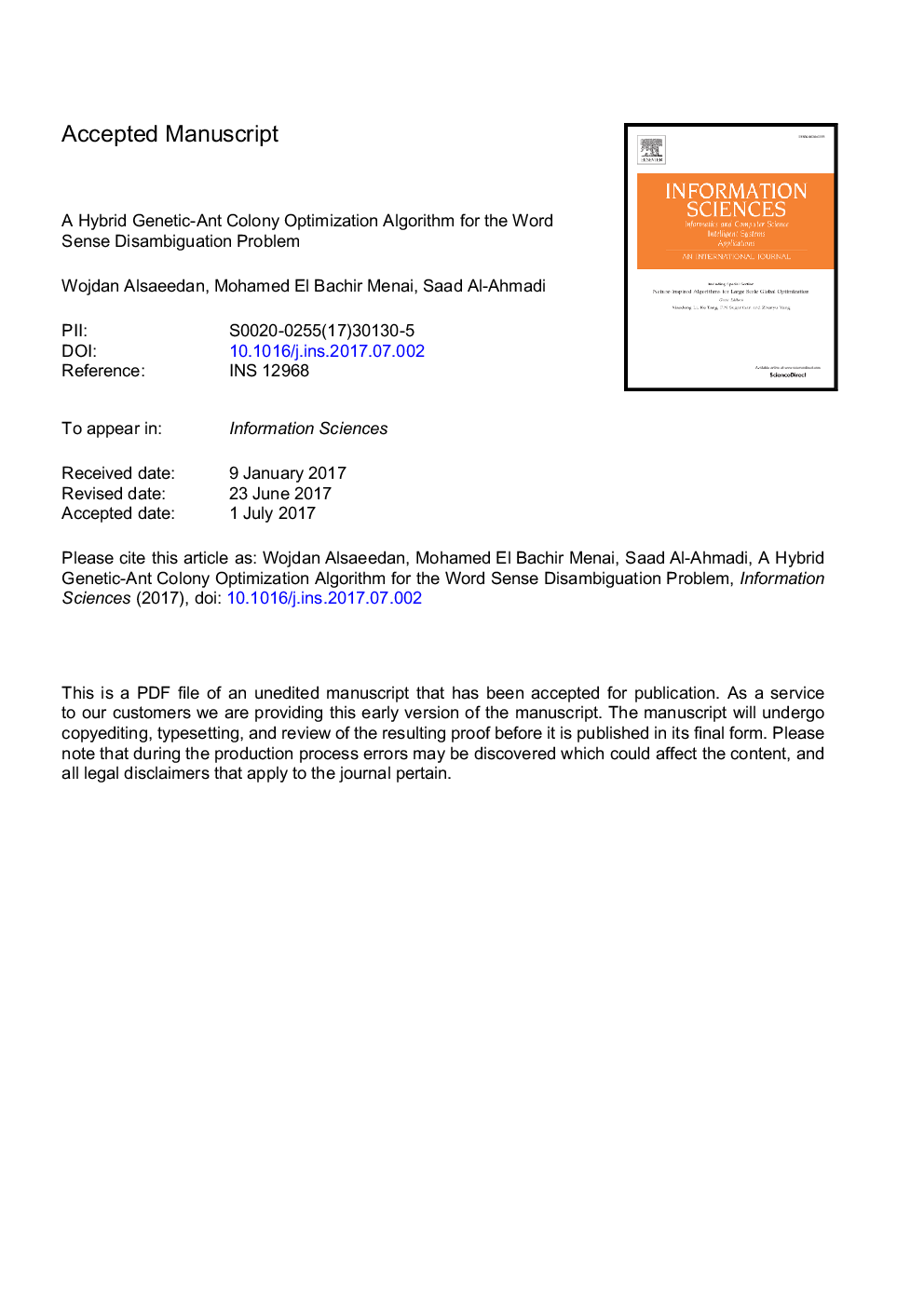| Article ID | Journal | Published Year | Pages | File Type |
|---|---|---|---|---|
| 4944295 | Information Sciences | 2017 | 24 Pages |
Abstract
Word sense disambiguation (WSD) is a natural language processing problem that occurs at the semantic level. It consists of determining the sense of a polysemous word that is suitable in a particular context. WSD has been addressed using several approaches, including metaheuristic algorithms. We propose hybrid algorithms for WSD that consist of a self-adaptive genetic algorithm (SAGA) and variants of ant colony optimization (ACO) algorithms: max-min ant system (MMAS) and ant colony system (ACS). SAGA is used to automatically tune the parameters of MMAS and ACS. The ACO algorithms are adapted based on a combination of semantic relatedness between sequences of senses corresponding to the context words and semantic relatedness between the sense of a target word and the sense of a context word. We evaluated the performance of the two ACO algorithms (MMASWSD and ACSWSD) and their hybridization with SAGA (GMMASWSD and GACSWSD) on fine-grained and coarse-grained corpora, and compared them with the best-performing algorithms. The empirical results indicate that GMMASWSD outperformed the other variants and all of the rival algorithms on the fine-grained corpora. However, GMMASWSD did not achieve the best performance on the coarse-grained corpus, even though its performance was close to that of the best algorithm.
Keywords
Related Topics
Physical Sciences and Engineering
Computer Science
Artificial Intelligence
Authors
Wojdan Alsaeedan, Mohamed El Bachir Menai, Saad Al-Ahmadi,
